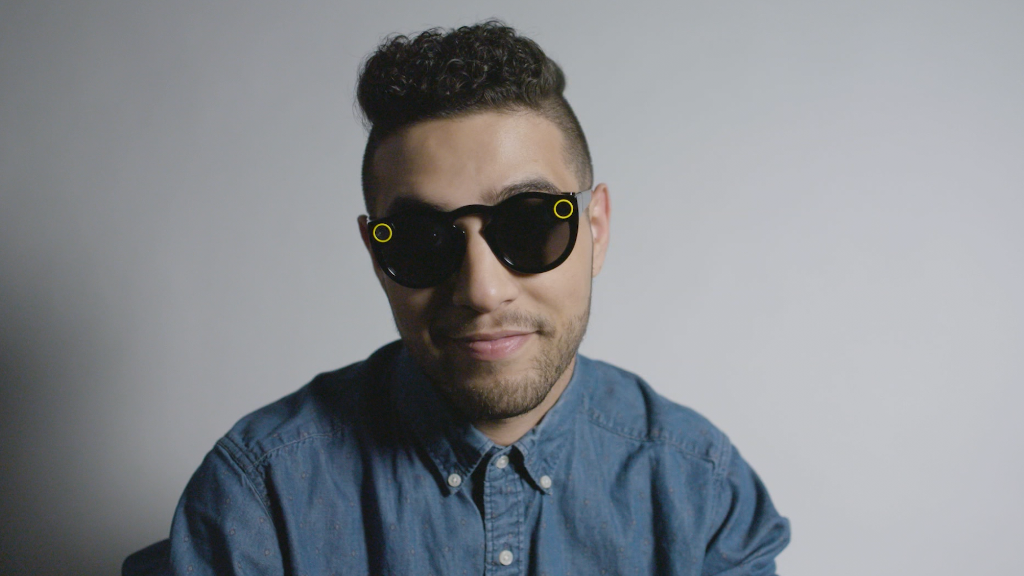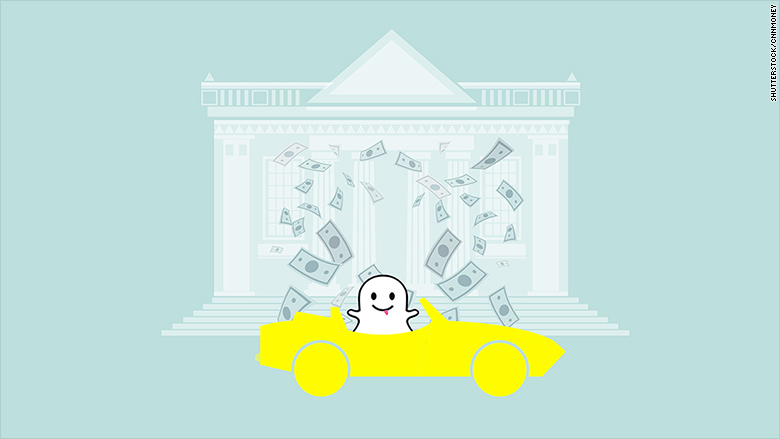
One week after Snapchat's parent company filed paperwork for its long-awaited IPO, Twitter released yet another disappointing earnings report that tanked its stock.
The two events might seem unrelated, but Twitter's struggles are perhaps the clearest reminder to potential Snap Inc investors of the risk in backing flashy social media companies.
"The Twitter story does not help Snap's IPO," says Kathleen Smith, principal at Renaissance Capital, which manages IPO-focused exchange-traded funds. "It hurts. It's a bit of a downer."
The recent history of social media IPOs boils down to "one success and one failure," Smith adds. Facebook (FB) is the success. Twitter is the failure. And the big question, Smith says, is "which one will Snap be?"
Snap expects to raise at least $3 billion from its public offering, making it the largest U.S. tech IPO since Facebook in 2012 and a rare event at a time when tech startups are staying private longer. But it's the comparison to Twitter, not Facebook, that is giving investors pause.
"The legacy of Twitter's tumble lives in the minds of all portfolio managers that focus on tech investing," says Dan Morgan, a senior portfolio manager with Synovus Trust. His fund owns shares in Facebook and Google (GOOGL), but will likely hold off on Snap.
Snapchat sets IPO valuation of up to $22 billion
Twitter (TWTR) went public in 2013 amid a wave of hype that it could be the next Facebook, with a billion or more users and all the advertising dollars that come with it. Instead, investors watched Twitter's growth stall as it approached 300 million users. Now even President Trump can't seem to save it.
Snap's filing is littered with red flags familiar to anyone who tracked Twitter: slowing user growth, mounting losses (more than $500 million in 2016) and a lofty valuation. In fact, the valuation concern may be even worse with Snap.
The company is seeking a market value of up to $22 billion, according to a company filing Thursday. Yet, most estimates suggest its 2017 sales will be around $1 billion.
Put another way, Snap thinks it should be worth more than 20 times its sales for the coming year. That's an even higher multiple than Twitter or Facebook asked for when going public, according to numbers crunched by Morgan.
"If they don't grow at the rate everyone thinks they are going to grow, then they are just going to get obliterated. There's not a lot of room for error," Morgan says.

At $25 billion, Snap would be worth twice as much as Twitter is currently even though the latter's sales were six times greater than Snap's in 2016.
Snapchat had 158 million daily active users in the fourth quarter of 2016, up 48% from the same period a year earlier, according to its IPO filing. However, its growth from the previous quarter slowed to a halt.
Related: Inside the quirky world of Snapchat
At this level, Snapchat is a far cry from Facebook, which had 1.23 billion daily users in the December quarter. Instead, it's much closer to Twitter, with an estimated 140 million daily users last year. (Twitter only reports monthly active users).
"It's hard to see how they can keep growing if their user base is primarily young people," says Michael Pachter, an analyst with Wedbush. "I can't justify joining to send videos to my daughters' friends (which would be creepy), and they're the only people I know on Snapchat."
Related: Even Trump isn't enough to fix Twitter's problems
James Cakmak, an analyst with Monness, Crespi, Hardt & Co., says the slowdown could be the result of Facebook rolling out its most successful Snapchat copycat feature yet with Instagram Stories.
Analysts are generally optimistic that Snapchat's audience of young, engaged users will be very valuable to marketers, but Cakmak says investors will still be watching to see if the stalled user growth is a "temporary blip."
"In this case, you can make excuses for the losses and the valuation, but you can't for users and engagement," Cakmak says. If user growth is "flatter" than expected, Cakmak says it could "significantly" hit Snap's valuation when it reports earnings for the first time as a public company.
This is exactly what happened to Twitter.
Twitter's stock peaked above $70 a share the month after it went public, then plummeted after its first earnings report as a public company showed slowing user growth. It never really recovered.

